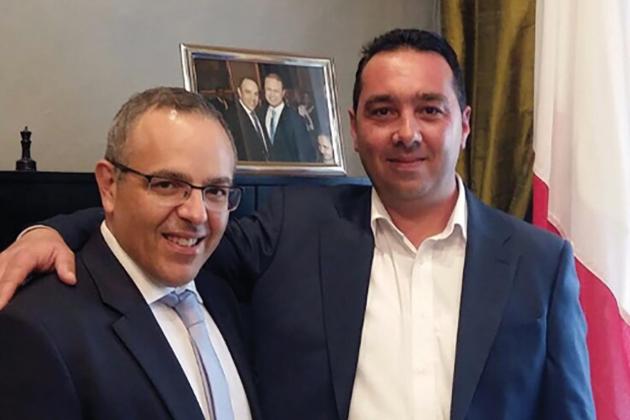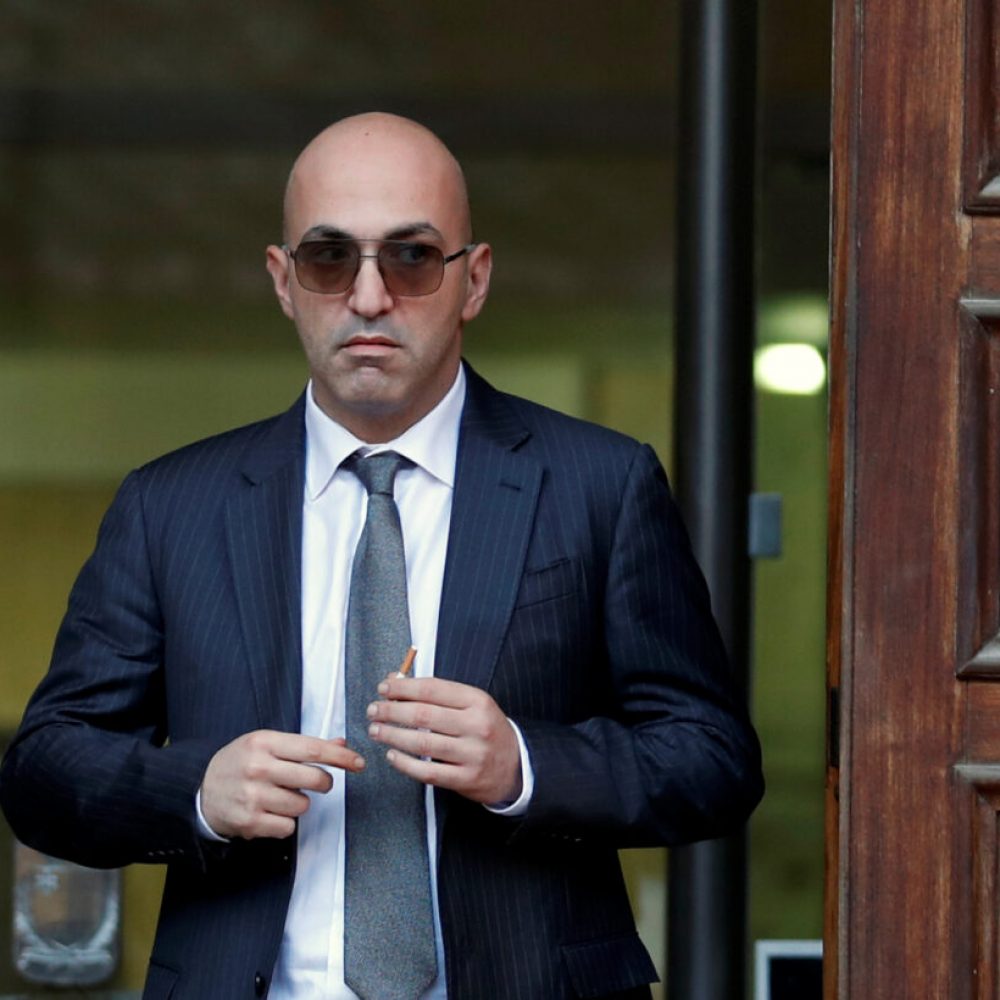Casino boss Yorgen Fenech has been indicted for the October 2017 murder of Maltese journalist Daphne Caruana Galizia.
The compilation of evidence stage of the proceedings is finished. Fenech, accused of masterminding the brutal execution by car bomb, will now face trial by jury on charges of complicity in murder and criminal association. Prosecutors are asking for the maximum sentence of life imprisonment for complicity in murder and 20 to 30 years for criminal association.
No date has been set for the trial, and a judge has yet to be appointed by Malta’s chief justice.
The bill of indictment states that Fenech set the murder plot in motion in April 2017 when he asked middleman Melvin Theuma to find someone to kill Caruana Galizia. Theuma drew on his underworld connections to contact and hire brothers Alfred and George Degiorgio, and their accomplice Vince Muscat – career criminals who have been linked to previous car bomb killings, shootings and bank heists.

Despite their past, they were roaming the island free, living conspicuous lifestyles well beyond their means, ready to be contracted for the next hit job. Registered as unemployed and on social benefits, the Degiorgio brothers owned luxury cars and boats, vacationed in Monte Carlo, and sent their children to expensive private schools.
The hitmen were arrested in a highly publicised raid two months after the murder, and efforts were made to convince the public that the case was now closed. It was only through the persistence of the Caruana Galizia family and a civil society movement born to demand justice for the slain journalist, aided by journalists’ investigations to discover the links in a corrupt criminal network, that law enforcement finally caught up with Yorgen Fenech.
The charges being put forward by the State prosecutor are based on Fenech’s communications with the middleman in April and June 2017, and on the fact that Fenech had been paying thousands of euros for the legal defence of the hitmen up until the middleman was arrested in November 2019.
Both Melvin Theuma (the middleman) and Vince Muscat (one of the hitmen) have turned State’s witness in exchange for presidential pardons. Accused murderer Yorgen Fenech, who named the former prime minister’s chief of staff as being involved in the plot, was denied a presidential pardon.
The public inquiry board investigating the State’s role in the journalist’s assassination concluded that the plot to murder Caruana Galizia was linked to the articles she was writing shortly before her death, and that the State was responsible for her murder as a result of the climate of impunity created by former prime minister Joseph Muscat.
Fenech is the scion of one of Malta’s wealthiest families, owners of the Tumas Group of companies. He was a primary mover and investor in a controversial power station deal involving the Maltese government and Azerbaijani State-owned company SOCAR.
An investigation by Reuters had revealed that he was also the owner of 17 Black, an offshore company set up to funnel kickbacks to similar companies owned by the energy minister and the former prime minister’s chief of staff. Caruana Galizia had linked these companies to the Electrogas project and was reporting on the energy deal at the time of her assassination.
According to the public inquiry, she had already uncovered information that would have “put in doubt” the future of the project. “She knew about the existence of 17 Black,” the report said. “She knew Electrogas was on the verge of failure and in September 2017 she wrote about this fact.”
Questions of political involvement have been raised throughout the compilation of evidence against Fenech and the hitmen due to the Electrogas connection and the timing of the murder.
The political situation in Malta was heating up and anti-corruption protests were sweeping the country when disgraced former prime minister Joseph Muscat called a snap election in May 2017.
The accused murderer, Fenech, contacted the middleman in June, days after the election was called, temporarily putting the murder on hold. He contacted Theuma again the day after Joseph Muscat was reelected and told him to go ahead with it.
In an unsuccessful bid to secure his own presidential pardon after his arrest, Fenech claimed chief of staff Keith Schembri had contributed €80,000 as part of the total €150,000 paid to the hitmen for the assassination. Schembri has not faced any charges related to the assassination.
Caruana Galizia’s youngest son, Paul, described Yorgen Fenech’s indictment as “a major turning point in our fight for justice”.
International press freedom organisations also welcomed the news, but were careful to point out that justice will only be served when everyone involved has been held accountable.
Mogens Bilcher Bjerregard, President of the European Federation of Journalists, Europe’s largest journalism union, warned that punishing those who pulled the trigger on the plot isn’t enough.
“Too often, it is only hitmen that get caught,” he said, “while the masterminds behind the crimes are running free. The Maltese authorities must punish everyone involved in the brutal murder.”
Other press freedom organisations issued similar statements. Reporters Without Borders said, “We will continue to campaign for all involved in this horrific attack to be brought to full justice.”
International Press Freedom Institute Deputy Director Scott Griffen called the indictment “a milestone in the fight against impunity”, but until the jury has made their decision, the IPI will “continue to demand justice for Daphne’s murder and consequences for the corruption she exposed.”
This case has global significance,” he said. “Impunity for those responsible cannot be allowed to continue.”
The Committee to Protect Journalists pointed out the damning conclusions of the public inquiry into Caruana Galizia’s murder: The Maltese State was responsible for the journalist’s death. It failed to recognise risks to her life, and failed to take reasonable steps to prevent her assassination.
The report specifically named disgraced ex-Prime Minister Joseph Muscat for enabling a culture of impunity that spread from the highest echelons of power through every government institution and office.
There is now a 30-month window in which Fenech must face a trial by jury.
The accused mastermind has made frequent applications for bail, but so far all have been denied due to his high risk of fleeing the country, as well as the possibility of evidence tampering and of further crimes being committed should he be released.
The State prosecutor told the court that Fenech had attempted to buy two grenades, two pistols, two machine guns, two assault rifles and 800 rounds of ammunition on the dark web using five different cryptocurrency wallets in November 2018, the month he was exposed as the owner of 17 Black.
Chats found on Fenech’s phone also revealed frantic attempts to flee the country in the hours leading up to his arrest in November 2019, including conversations with family members about rental cars, property purchases and the movement of large sums of cash.
Judge Giovanni Grixti denied the latest bail application after it was revealed that he had bought a 50-foot yacht from Fenech’s father, George, in 2008. The judge’s association with the Fenech family also led to questions about a series of decisions taken by the judge after he was promoted by Joseph Muscat amid a flurry of judicial appointments in the first years of the administration.
Yorgen Fenech has been held without bail since his arrest in November 2019, and is expected to remain in custody.
The following project is weekly Maltese Roundups prepared by The Shift News (Malta) offering the latest news in Daphne Caruana Galizia case.

